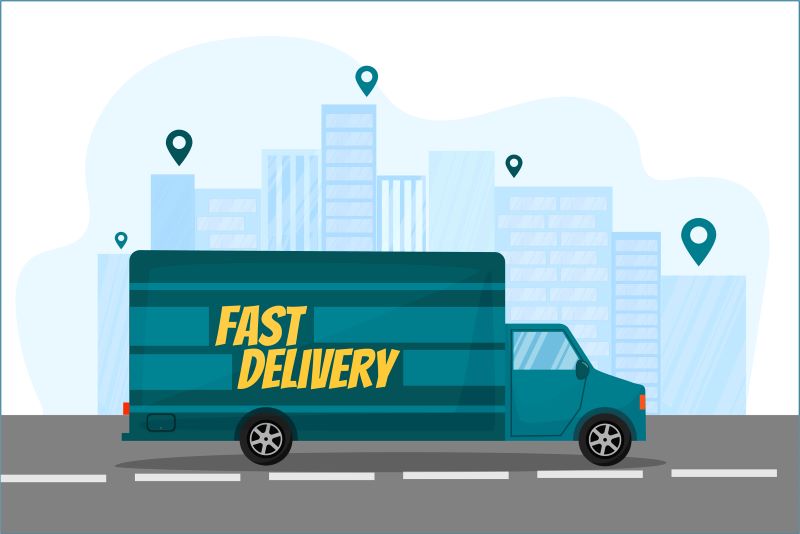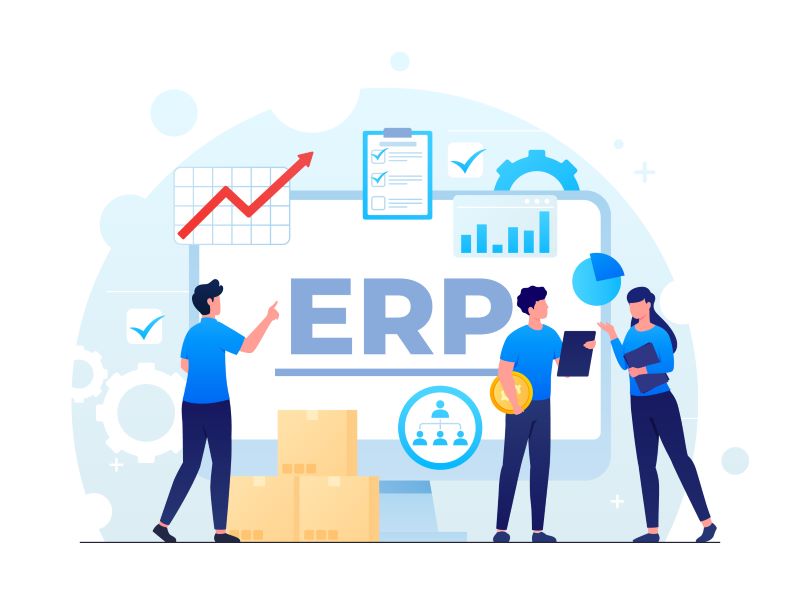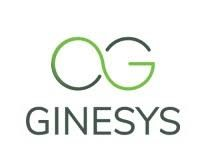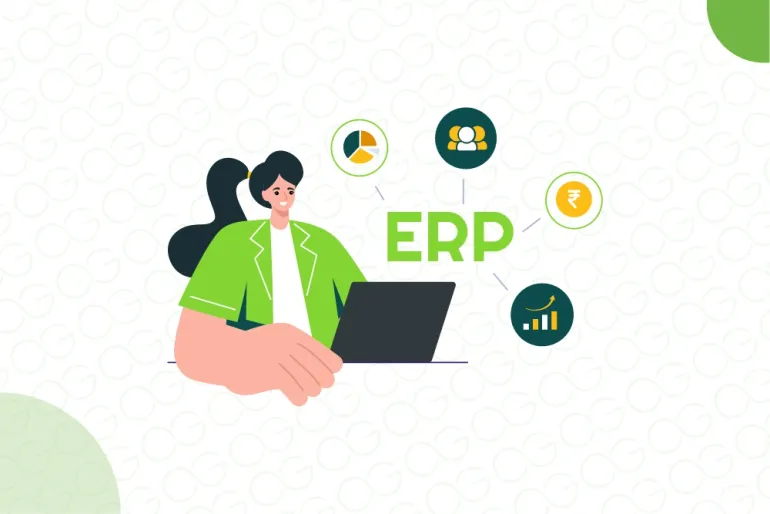Best Integrations with Retail ERP
In today’s competitive environment, it is more important than ever to effectively manage retail operations. The use of Enterprise Retail Planning (ERP) has become pervasive in this endeavor. The solution acts as a centralized platform that enables retailers to control the inventory, supply chain, financials, and customer relationship management from a single platform. ERP for retail consolidates information, enforces the use of a set procedure for all day-to-day operations, and provides real-time information for decision-making.
In this blog, we will explore how the integration of ERP systems can streamline operations, enhance efficiency, and boost overall profitability. We will delve into the key benefits of this integration and discuss how these improvements can lead to better customer satisfaction and stronger business performance.

Streamline retail success with ERP integration
Why Integration is Crucial for Retailers
In today’s fast-paced retail environment, integration is not just an option, but a necessity for success. Here are some key reasons why integration is crucial for retailers:
- Enhancing Operational Efficiency: Integrating retail ERP software with other retail processes is crucial to enhance operations flow. Linking inventory, sales, accounting, and supply chain applications can help retailers minimize manual entry and ensure all business operations are integrated. This integration helps in avoiding duplication of efforts, ensures timely delivery, and helps the staff to perform more valuable work, thus increasing productivity.
- Real-Time Data Synchronization: In the fast-paced retail industry, information is powerful, and accurate and swift delivery is key. The integration of ERP systems synchronizes data in real-time across all the channels, including physical stores and internet-based retail stores. This guarantees that inventories, prices, and customer data are updated, leading to prompt decision-making.
- Improving Customer Experience: The importance of properly integrated Retail ERP systems cannot be overemphasized as it enhances the customer experience. With synchronized data, retailers can efficiently sell products across multiple channels, offer tailored products and services, and provide customers with real-time stock information. This leads to quicker order processing, fewer stockout situations, and more effective customer service, leading to increased customer satisfaction and customer loyalty.
- Reducing Manual Errors and Operational Costs: Manual data entry and the use of multiple disconnected systems lead to silos, causing unnecessary errors and inefficient use of resources. The incorporation of retail tech integrations with other retail systems reduces the number of manual entries thereby reducing errors like price errors, inventory control errors, or order processing errors. This not only increases the accuracy of retail operations but also reduces the overall operational expenses since fewer resources are needed to handle and rectify such mistakes.

Streamline retail with ERP: Efficiency, control, growth
Key Features of Effective Retail ERP Integration
Integrating an ERP system into retail operations can transform how businesses manage their processes and interact with customers. For integration to be effective and deliver the desired benefits, it should encompass several key features. Some of them include:
- Seamless Data Flow Across Systems: Effective retail ERP integration ensures a seamless data flow across various systems within the organization. By integrating disparate systems such as point-of-sale (POS), customer relationship management (CRM), supply chain, and finance, retailers can achieve real-time data synchronization. This enables accurate and up-to-date information across all departments, facilitating better decision-making and operational efficiency.
- Centralized Inventory Management: A robust retail ERP integration provides centralized inventory management, which is crucial for maintaining optimal stock levels and reducing carrying costs. By consolidating inventory data from multiple locations and sales channels into a single platform, retailers can gain a holistic view of their stock. This centralized approach allows for more accurate demand forecasting, efficient order fulfillment, and minimized stockouts or overstock situations.
- Integrated Sales and Marketing Automation: Integrating sales and marketing automation within the ERP system empowers retailers to streamline customer engagement and drive sales growth. An effective retail ERP system can automate various sales processes, including lead management, order processing, and customer follow-ups. Additionally, marketing campaigns can be synchronized with sales data, allowing for personalized promotions and targeted marketing efforts.
- Omnichannel Retail Support: In today's retail landscape, omnichannel retail support is essential for providing a consistent and seamless customer experience across all touchpoints. A well-integrated retail ERP software enables retailers to manage and synchronize operations across various channels. This integration ensures that inventory, pricing, and promotions are consistent across all channels, allowing customers to move seamlessly between them.

Best Practices for Integrating Retail ERP Systems
Integrating an ERP system in the retail sector can be transformative, but it requires careful planning and execution. Here are some best practices to ensure a smooth integration process:
- Choosing the Right ERP for the Business Needs: As retailers increasingly rely on specialized tools for retail ERP, such as POS, customer service, and marketing, it becomes essential to integrate these applications with ERP systems. Such a process also reduces errors, eliminates manual data input, and enhances business operations, thus improving customer satisfaction and profitability.
- Ensuring Compatibility with Existing Systems: To avoid disruptions and maximize the benefits of the ERP integration, it’s essential to ensure compatibility with the existing systems. Start by mapping out the current IT infrastructure and identifying potential integration points. Assess whether the ERP system can work harmoniously with other software applications, such as POS systems, CRM tools, and supply chain management platforms. Look for ERP solutions that offer pre-built connectors or support custom integration to bridge any gaps. A thorough compatibility check helps prevent data silos and ensures a smoother transition, minimizing the risk of operational downtime.
- API-Based Integration Approach Benefits: When integrating the ERP system with other business applications, adopting API-based integration will provide numerous benefits. API interfaces enable real-time communication between different systems, facilitating efficient and fast data transfers. This approach offers greater flexibility compared to the traditional method, allowing businesses to create integrations tailored to their business's specific needs. Additionally, it can be easily adjusted to accommodate the company's growth and evolving requirements.
- Security and Compliance Considerations: Security is a crucial factor when it comes to the implementation of retail ERP software, especially in the current world where cases of data theft and compliance issues are on the rise. APIs are particularly strong in this regard since they offer safe means of transferring data. Security is typically integrated into these architectures through various services, including encryption, authentication, and authorization. This ensures that only authorized systems and users can access and utilize these security features. Additionally, APIs help businesses ensure compliance with industry regulations like GDPR or PCI-DSS. The use of API-based integration also helps in easy monitoring and auditing of the data flows.

Streamline retail success with integrated ERP systems
Ginesys - A Leading Retail ERP Integration Solution
In today’s fast-paced retail environment, managing operations efficiently is crucial for success. Ginesys stands out as a premier retail ERP integration solution, designed specifically to cater to the dynamic needs of the retail industry. It is a flexible, modular, and scalable solution to accommodate the changing shifts in market dynamics.
Experience top-tier retail solutions with the best-in-class POS systems — the offline Ginesys POS and the cloud-based Zwing POS, paired with Browntape, a leading e-commerce OMS. These advanced tools for retail ERP provide a significant competitive edge from the outset. Ideal for direct-to-consumer e-commerce sites, retail stores, and B2B trading businesses, these solutions are designed to streamline operations and surpass the competition.
Top ERP Integrations by Ginesys for Retailers
The platform provides a comprehensive suite of integrations that are essential for the smooth functioning of modern retail businesses. These integrations cover every critical aspect of retail operations, ensuring that businesses can manage their resources effectively and provide an exceptional customer experience.
Here’s an in-depth look at some of the top ERP integrations by Ginesys and how they benefit retailers.
POS (Point of Sale)
The POS integration encompasses several critical components:
- Item Master: The integration ensures that the item master data—product details, pricing, and inventory levels—is consistently updated across all sales channels. This synchronization helps in maintaining accurate product information, reducing discrepancies, and ensuring that inventory levels are correctly reflected at the point of sale.
- POS Transactions: Retail POS ERP integration allows for real-time synchronization of sales transactions. This means that every sale made at the retail store is instantly recorded and reflected in the ERP system, enabling accurate sales reporting and inventory management.
- Goods Transfer to and from Store: Retailers often need to transfer goods between stores or from a central warehouse to a store. The integration facilitates the smooth handling of these transfers by automating the process and ensuring that inventory records are updated in real-time, reducing manual errors and improving stock management.
- Cash and Other Collections: Managing cash and other forms of payments is streamlined through this integration. It ensures that cash collections, card transactions, and other payment types are accurately recorded and reconciled, which helps in financial reporting and auditing.
CRM (Customer Relationship Management)
Effective CRM integration is vital for understanding and managing customer and vendor relationships:
- Customer Data: Ginesys integrates with CRM systems to provide a comprehensive view of customer interactions and transactions. This includes customer profiles, purchase history, preferences, and feedback. Such integration helps retailers personalize marketing efforts, improve customer service, and drive customer loyalty.
- Vendor Data: Similarly, the CRM and retail ERP integration helps notify vendors of interactions, contracts, and performance. This enables retailers to manage vendor relationships more effectively, negotiate better terms, and ensure a consistent supply of goods.
OMS (Order Management System)
The OMS integration is crucial for managing e-commerce operations:
- E-commerce Orders: Integration with OMS systems ensures that orders placed through online platforms are seamlessly processed. This includes capturing order details, updating inventory levels, and coordinating order fulfillment.
- Inventory for E-commerce: The integration also manages inventory levels for e-commerce channels, ensuring that stock availability is accurately reflected online. This prevents overselling and stockouts, thereby enhancing the customer experience and optimizing inventory turnover.
GST (Goods and Services Tax)
Compliance with GST regulations is simplified through the following integrations:
- E-Invoicing: Ginesys integrates with GST e-invoicing systems to automate the generation and submission of GST-compliant invoices. This reduces manual errors, speeds up invoice processing, and ensures adherence to tax regulations.
- E-Way Bills: Integration with e-way bill systems facilitates the generation and management of e-way bills required for the transportation of goods. This retail ERP integration ensures compliance with regulatory requirements and helps in tracking and managing shipments efficiently.
BI (Business Intelligence) and Advanced Replenishment Systems
Business Intelligence integration provides valuable insights and
- Complete Data for Analysis: Ginesys’ BI integration consolidates data from various sources—sales, inventory, customer interactions, and more—into a unified platform. This enables retailers to perform in-depth analysis, generate actionable insights, and make data-driven decisions that enhance operational efficiency and strategic planning.
- Advanced Replenishment: The platform offers advanced replenishment solutions that use historical sales data, forecasted demand, and inventory levels to automate the ordering process. This reduces stockouts, minimizes excess inventory, and improves overall inventory turnover. The system ensures that the right products are available at the right time, enhancing the efficiency of the supply chain and meeting customer demand effectively.
Supply Chain
Effective supply chain management is supported by:
- Vendor Onboarding: Ginesys integrates with supply chain management systems to streamline the onboarding process for new vendors. This retail ERP and supply chain integration includes managing documentation, contract details, and performance metrics to ensure smooth integration with the supply chain.
- RFP (Request for Proposal): Integration with RFP systems allow retailers to manage the proposal process efficiently. It facilitates the submission, evaluation, and selection of vendor proposals, ensuring that the best suppliers are chosen based on performance and cost criteria.
- ASN (Advanced Shipping Notice): ASN integration helps retailers receive detailed shipping notices from suppliers before the goods arrive. This allows for better preparation and planning, reducing delays and improving inventory management upon receipt.
WMS (Warehouse Management System)
Effective warehouse management is supported through:
- WMS Integration: Integration with WMS systems help retailers manage warehouse operations efficiently. This includes tracking inventory movement, managing storage locations, and optimizing picking and packing processes. This retail ERP integration ensures that inventory data is accurate, reduces operational errors, and improves order fulfillment speed.

Benefits of Ginesys One Suite
The Ginesys One Suite offers retailers a holistic solution that integrates all critical business functions into a single, unified platform. This comprehensive suite provides several key benefits:
- Centralized Operations: The suite centralizes all retail operations, enabling businesses to manage their entire ecosystem from a single platform. This integration helps streamline operations and reduces the need for multiple, disjointed systems.
- Scalability: Designed to grow with the business, retail ERP software can easily scale to accommodate increased transaction volumes, additional locations, and more complex business requirements, ensuring long-term flexibility and support.
- Enhanced Efficiency: By automating routine tasks and providing real-time data access, Ginesys helps retailers enhance their operational efficiency. This includes automated stock replenishment, real-time inventory tracking, and streamlined order processing.
- Real-Time Insights: The suite provides advanced reporting and analytics capabilities, delivering real-time insights into sales, inventory levels, and customer behavior. This helps businesses make informed decisions and quickly adapt to market trends.
- Improved Customer Experience: Integrating CRM and POS systems enhances the customer experience, enabling personalized interactions and efficient service delivery.
- Data-Driven Insights: The integrated BI tools provide deep insights into business performance, helping retailers make informed decisions and stay ahead of the competition.
- Regulatory Compliance: With built-in GST and other compliance tools for retail ERP, it ensures that retailers can easily adhere to regulatory requirements.
- Cross-Channel Integration: Ginesys One Suite supports seamless integration across various sales channels, including brick-and-mortar stores, e-commerce platforms, and mobile apps. This omnichannel approach ensures consistent customer experience and unified operations.

Effortless retail management, seamless integration with Ginesys
ERP integration is more than just a technical enhancement for retail businesses—it's a crucial component that drives operational efficiency, enhances customer experience, and supports long-term growth. In today's competitive retail landscape, seamless integration between ERP systems and other business functions is essential for managing inventory, streamlining processes, and making data-driven decisions.
As the retail industry continues to evolve, investing in robust retail ERP integration solutions is no longer optional—it's imperative. Retailers who prioritize these integrations position themselves for success by improving agility, reducing costs, and responding faster to market demands. The right ERP integration not only simplifies day-to-day operations but also empowers retailers to innovate and stay ahead of the competition.
We invite you to learn more about Ginesys and how its comprehensive integration capabilities can help your retail business thrive. With the platform's advanced features and seamless integration capabilities, you can unlock new efficiencies, drive innovation, and position your brand for sustained success in the future.
Contact us today to explore how Ginesys can elevate your retail operations with its advanced integration capabilities.

